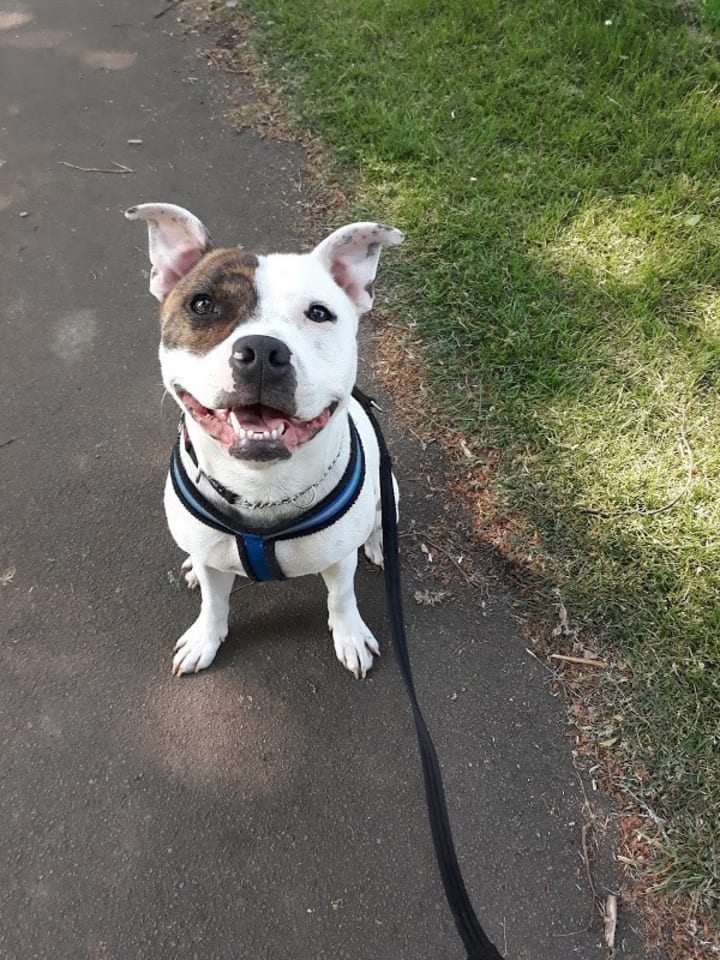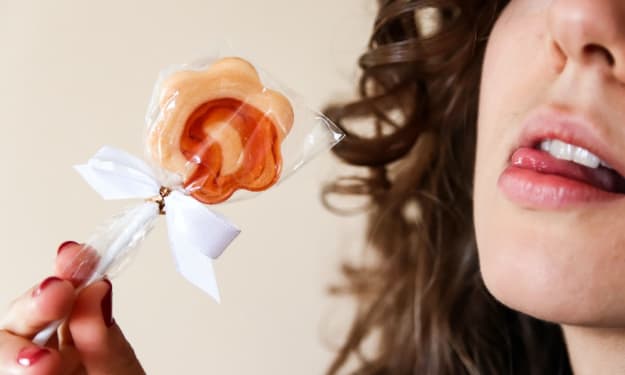How to Live With Tinnitus Without Losing Your Mind
and how to come back to reality if you do

I’ve been living with Tinnitus for almost five years. Although now I can cope with it (some days better than others), the first 18 months were a nightmare.
I first noticed I had a ringing on my brain in January 2017, in bed, when the house was silent. Six months later, the ringing became unbearable. Since then, everything has changed for me. My life changed completely.
This is the definition of Tinnitus:
The sensation of hearing noises in your ear or head when there is no external cause. ~ British Tinnitus Association~
People who suffer from this condition hear distinct sounds. Mine is the most common: a high pitch ringing.
The sound in the brain — that can be perceptible in both ears, only in one or in the brain — varies in volume, and it can be constant or intermittent. Mine is constant; I hear it 24 hours a day, some days louder, others more discreet. But it has been over four years that I don’t know what silence is.
It took me a long time and a lot of adjustments to cope with tinnitus and to be possible to live with it. In my worse phase I even considered ending my life; I was desperate and without hope.
Tinnitus is incapacitant. You have no other choice than to live with it. There's no cure or treatment, you must learn to live with it and not against it. It’s a waste of your energy and time.
In my acute crisis I had to stop working. The loud environment of my workplace and the stress my position carried (I was a manager in a care home), made it impossible for me to be there. For two months, I became a hostage in my own house, I couldn’t risk going out, the noises were dangerously incapacitating.
When I hit the rock bottom, I saw no way out than to change my life as I knew it. I got a different job - one with no stress and in a quiet space -; I changed my routine, and stop doing things I used to do.
It took me a long time to see positive results, about 10 months. I stopped going to the pub with my friends; I could only leave the house with noise-cancelling headphones; I had to have white noise always on and to be extra careful about loud noises. It was extremely hard, but I made it - I got out of the negative spiral I had entered so long ago.
In time, the tinnitus became lower, and I learned to take my mind out of it. I still have bad days, but now I know that tomorrow (or in a few days) it will be better. I don’t allow depression and anger to overtake me.
On those bad days, I wake up exhausted. I’m sure that despite I slept the previous night, my brain didn’t rest. I spend all day confused and forgetful, unable to concentrate. It’s not easy, my friends.
But, in general, I cope with living with tinnitus. How was I able to get to this point? I’ve adopted some habits that, in baby steps, made me get better. Not to the point of the ringing disappeared (I wish!), but better because I can let go of the ringing, I’m not focused on it all the time.

Most of the time, my days are good, mainly because of the five things I’m sharing with you today.
In fact, it should be six, because literature says that Yoga/meditation has proven to reduce the symptoms of tinnitus. However, I’m not a big fan of those activities. I invest a lot in self-care, but not with meditation or Yoga. But I go often to the gym, and because it contributes to a boost of the “happy hormones”, I believe it also has a positive impact on my tinnitus.
Allow me to share what helped me cope with tinnitus:
1. White noise
For those of us that have tinnitus as a partner, white noise is a life saviour. Pink or red noise can also help, but for me, white works best.
White noise is static noise, similar to a radio tuned off (you can listen here). This sound therapy helped me a lot, and I used it in two different ways: 1) wearable sound generator with white noise (a small hearing aid), and 2) the Tinnitus Sound app, to help me fall asleep.
I used the wearable sound generator all the time for several months, but then the audiologist advised me to reduce the time I used them. Because I suffer from hyperacusis (hyper sensitivity to sound), it would be advisable to train my brain to manage sounds - which I did and I stopped using the devices. Although I always have to have background noises, like the TV, music or a fan.
2. Walking in the park
Physical exercise has more effects on our health than just physical.
I love to walk, and fortunately, I live nearby marvellous parks. I’ve always walked regularly, but if I wasn’t in the mood, I wouldn’t go. Since I have tinnitus, I made it a habit and make an extra effort to go for a walk, even if I don’t feel like it.
While I’m walking, I take deep breaths, for relaxation.
Being relaxed and stress-free is the best weapon against tinnitus.
3. Spend Time With friends
This was a big step to take. When tinnitus escalated, my social life died; I spent weeks in a row seeing no one. Just the thought of having people talking near me scared me to death.
When I decided to regain control of my life, I slowly started to meet my friends again, one or two at a time. And because I had educated them about my condition and needs, they were careful. They would speak low and be very aware of noises (for instance if they needed to use the kitchen.)
Being with people that makes you feel good is positive not only for your mood and self-esteem, as it prevents you from isolation — which is an enormous trigger to depression.
Being so hard living with Tinnitus, you can easily get depressed. You’re tired, often sleep-deprived, you don’t have silence, you can’t hear properly, you can’t be near specific noises,… It’s exhausting, you just want to be left alone. But that’s not the answer.
Having friends around is a way to take your mind off the tinnitus, you are distracted from it. So, don’t isolate yourself and try harder to be with them. If, like me, sometimes you can’t handle noises, invite just one friend and be clear about your needs. I’m sure they will understand and make the possible to help you.
4. Drive to a place I’ve never been
I love to travel, to know cities, villages or parks; to explore the cultural side of the places I visit.
When I’m having a bad tinnitus day and if I’m not working (if I am, I’ll take a deep breath and face the day), I drive to a place I’ve never been before. Living in England, I have beautiful villages all around me.
The purpose is to get my brain distracted from the ringing. It usually works very well. While I’m exploring the site, I’m focused on my surroundings, exploring, admiring, and not focusing on the ringing inside my brain.
The ringing is there, always, but my attention is somewhere else. Usually, when I do this, I get a better night of sleep.
5. Rescue a dog
This is not advice; rescuing a dog is a tremendous responsibility!
But, being my dog (Jack) the main reason for my “healing”, I had to include him here. And I’m going to tell you how he did it:
The worst part of the day for people who have tinnitus is when we wake up. The sound is more severe than at any other time of the day. According to experts, this happens because being lying down for a long period increases the blood flow on the brain, which worsens tinnitus.
Before Jack, I used to have terrible awakenings. Many times, before even opening my eyes, I was already crying in despair, because of the high-pitched ringing perforating my ears. I couldn’t hear external sounds, just a maddening ringing.
So, depressed from the moment I awake, I would put on my white noise sound generators and I’d try to start my day through tiredness and confusion and mostly despair.
But all of that changed when I adopted Jack. From day one, my awakenings became wonderful. The second he realised I was awake, he'd come to me with his big smile (he’s a staffie; they have the most amazing smiles), trying to get my attention. That he had, of course.
Hence, even before I open my eyes, my focus was already on Jack. Not in the ringing, not in the confusion or wondering how I’m going to survive the new day. Jack is there, smiling and happy to see me, asking for playing and food. As always, the ringing is in my brain, but the difference now it’s that I’m not focused on it.

Jack himself was (and still is) a great help to fight my tinnitus, and because I have to walk him several times a day, my physical and mental health also improved.
****
I still have bad tinnitus days. But I learned it gets better. Tomorrow, in two or three days, the ringing will calm down and I will feel better again.
I stopped fighting tinnitus. I learned what triggers it and what calms it down. And I work on it, every single day, to make my life easier and to live it as normal as possible for me.
If you're struggling with tinnitus, trust me: it will get better. Stop fighting it. Accept it and work around it. There's no other way. All the best!
© 2021 Emma London. All Rights Reserved
About the Creator
Emma London
Writer of many things, thinker of a thousand more. An advocate for positive sexuality.
Her heart is owned by a rescued staffie and by a kinky man.
Twitter @EmmaLondonWrite






Comments
There are no comments for this story
Be the first to respond and start the conversation.